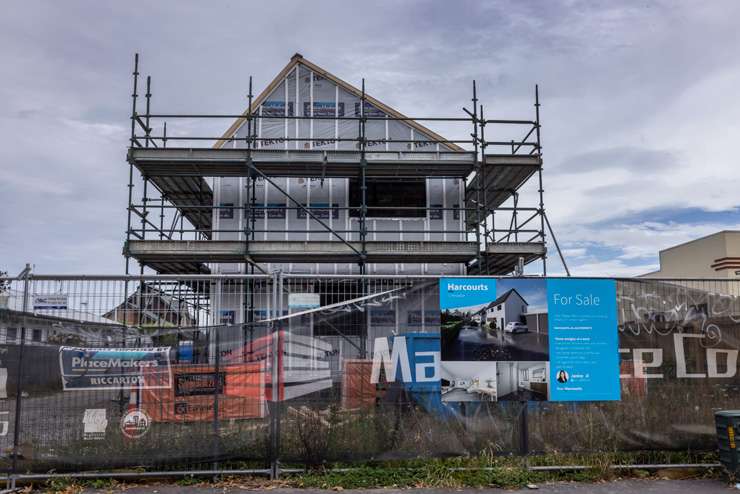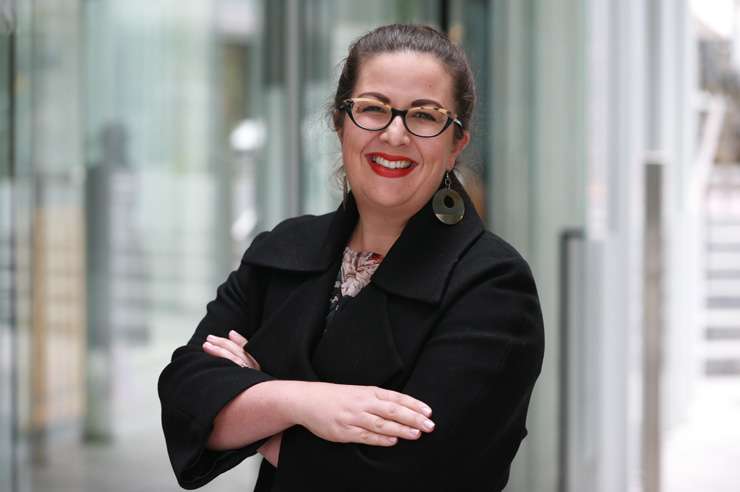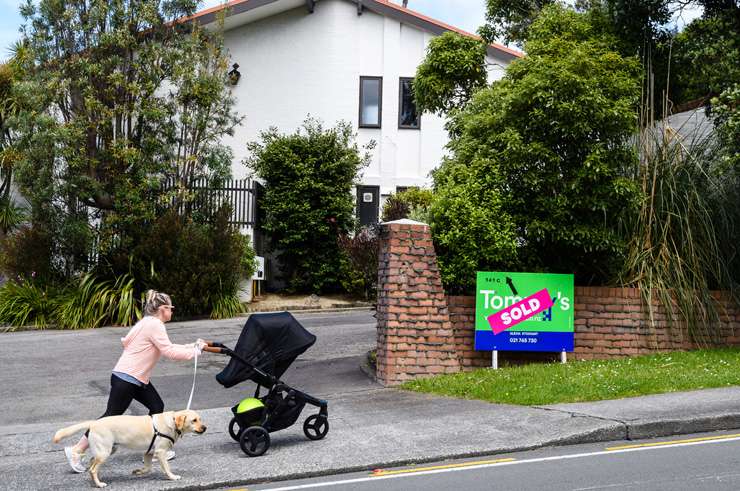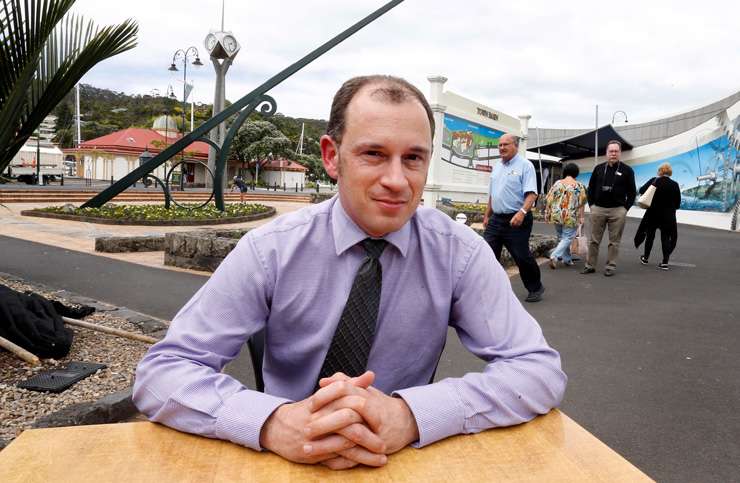Experts believe first-home buyers who bought in the last two years have taken on such huge debts they will still be paying back their home loans when they are pensioners.
New research by OneRoof and its data partner Valocity has found first-home buyers are paying up to $300,000 more now than they would have three years ago, before the house price surge.
First-home buyers in Auckland are forking out more than $1 million for a home, and will be saddled with mortgages of $800,000 and above, the research suggests.
One financial adviser told OneRoof some first-home buyers would be better off selling, while others said they expected the pain to start showing in the coming months.
Start your property search
OneRoof and Valocity looked at the median sale price of properties bought by first-home buyers in the first half of this year and compared it to the median sale price of first-home buyer purchases in the first six months of 2021 and 2019.
The analysis found that despite falling prices, first-home buyers in all but one region paid more in the first six months of 2022 than they did in the first six months of last year.
The nationwide median sale price for first-home buyers jumped 8.7% from $718,000 in the first half of 2021 to $781,000 in the first half of this year.
Canterbury first-home buyers saw the biggest leap in prices between the two periods (up 24%, from $500,000 to $620,000). Also paying considerably more were first-home buyers in Northland and Waikato, where the median sale price for first-home buyers rose 14.3% and 13.2% respectively.
First-home buyers in Tasman, Bay of Plenty and West Coast also saw double-digit price increases between the two periods, while the median sale price for first-home buyer purchases rose 4.9% to $1.05m in Auckland and 2.4% to $855,000 in Wellington.
Only Hawke’s Bay’s median sale price for first-home buyer purchases fell over the stated periods, although the decline was a marginal 0.08%, from $660,500 to $660,000.
The cheapest region for first-home buyers was West Coast, where the median sale in the first half of this year was $307,500, while the most expensive region was Auckland.
The analysis highlighted the damage the post-Covid house price surge has done to first-home buyer finances. The nationwide median sale price for first-home buyers in the first half of 2022 was 51% ($266,000) higher than the median sale price in the first half of 2019.
The house price surge has pushed up the median sale price of first-home buyer homes in Auckland by $295,000; in the Bay of Plenty, first-home buyers are paying $300,000 more and in Wellington, the premium is $279,000.
Gisborne first-home buyers have been hit the hardest: the increase in the median sale price for first-home buyer purchases between the first half of 2019 and the first half of this year is 77% – from $330,000 to $585,000. The smallest change was Nelson, where the median sale price for first-home buyers only rose 35% between the two periods.
The surge means first-home buyers are taking bigger debts. The numbers suggest that first-home buyers who bought in Auckland in the first half of this year took on mortgages of more than $800,000, assuming they bought with a 20% deposit.
The median sale price of $1.05m for first-home buyers in the city is just the median. Some first-home buyers will have bought for below $1m but there will be those who paid more, and as a result will have taken on bigger debts.
The OneRoof-Valocity analysis noted that while there were fewer first-home buyers in the first half of this year compared to the first half of last year, first-home buyers were still more active in the market than other groups, such as investors and other homeowners.
Senior research analyst for Valocity Wayne Shum said: “The share (of first-home buyers) has gone up but the total number has gone down – first-home buyers were getting a bigger share of a smaller pie.”
The data shows first-home buyer mortgage registrations dropped 22.8% nationwide for the time periods measured, from 20,099 to 15,522. In Auckland, registration numbers were down 16.6%, from 6918 to 5768, but first-home buyers still accounted for 41% of the overall share of property buyers, up slightly from 39.5% to 41%.
In Wellington, the drop in registrations was higher, falling 29.8%, from 2153 to 1512, while in Christchurch the fall was 16.21%, from 2960 to 1726.
Canterbury region saw the lowest drop in first-home buyer numbers, down 15.7%.

A new-build home in the suburb of Riccarton in Christchurch, where first-home buyer mortgage registrations in the South Island city in the first six months of 2022 were 16.21% down on the same period in 2021. Photo / Peter Meecham
The number of first-home buyers fell the most on the West Coast of the South Island (-38.5%), followed by the Bay of Plenty (-35.7%), Marlborough (-33.3%) and Hawke’s Bay (-32.4%).
Shum says regional differences indicate the tightened credit lending rules when the CCCFA was toughened up did not have much impact in areas like Auckland but did hamper first-home buyers’ ability to buy in some parts of the country, such as Christchurch, Lower and Upper Hutt and Tauranga.
The figures also show first-home buyers were buying cheaper houses than investors, with the median purchase price by investors sitting at $890,000 for the first half of this year compared to the median $781,000 paid by first-home buyers.
Shum also says contrary to popular belief, Auckland buyers don’t have the smallest homes but they do have the smallest sections with an 83sqm section size decrease, reflective of the new townhouse developments across the city.
Auckland is still the most expensive market for first-home buyers, even for those who bought for less than the median.
One buyer, who did not want to be named, says she and her partner bought a unit in a cheaper Auckland suburb mid-last year for which they paid nearly $800,000.
The pair are in their 40s and will still be paying off the mortgage in their 70s, she says. They were able to buy because family helped with the deposit but had to sacrifice where they wanted to live.
She says they are surviving by living frugally but when their fixed rate of just under 3% comes up for renewal in a year’s time they will likely face interest rates in the 5%s, hiking their payments from the $500s a week to the $600s.
Hefty Auckland rates are on top of the mortgage, as are insurance payments and maintenance costs, including unexpected appliance and other break-downs. “It’s not just the mortgage, it’s all those other things,” she says.
“What happens when the hot water cylinder goes, all that kind of thing. With the rising cost of living it’s those things you need to think about and you need to be prepared for.”
With the market falling if the couple sold now they would lose money, she says, but she also doesn’t regret buying, even though the purchase was last year when prices were still going up.
They had spent a year watching the market go crazy and homes they liked slipping out of reach, she says. “We literally saw house prices going up in front of our eyes. You do have to think about the what ifs and the worst-case scenarios but you just kind of go for it anyway.”

Enable.me founder Hannah McQueen: “When interest rates were around 1.8% it was fine but it’s starting to hurt.” Photo / Doug Sherring
Heather Roney, financial adviser and founder of the Mortgage Ladies and Co in Auckland, says she sees extremes in the market, saying a first-home buyer couple recently came to her for advice having bought a $1.8m property.
The home had since dropped in value by $300,000 but the couple still had a $1.6m mortgage to repay.
Roney says a lot of people were caught up in the FOMO (Fear of Missing Out) post-Covid: “There was this whole hype of ‘oh my gosh, the rates are so low, let’s get the house, we’ve got nothing else to spend money on’.”
The LVR (Loan to Value) regulations being removed at the time made it easier to buy so people went “a bit stir crazy”, she says.
She was surprised at some of the advice given to first-home buyers and urged people to seek out sound and experienced professionals before making such a life-changing purchase.
She also says some people are so focused on buying they don’t think about ongoing costs.
Auckland’s median first-home buyer mortgage of around $800,000 would cost over $1000 a week to service on a 30-year-term, although Roney advises 25-year terms so clients have a buffer if they get into strife.
A family of two working adults with two children would need an income of around $170,000 to service the mortgage, she says, plus they need to factor in other costs including rates, insurance, petrol, utilities, groceries, childcare, school fees and other activities, which could add another $1000 a week and that still doesn’t cover unexpected breakdowns and maintenance.
Hannah McQueen, founder of financial advice company enable.me, says her advisers have seen clients who have taken on debt seven or eight times their income and that’s a worry.
“When interest rates were around 1.8% it was fine but it’s starting to hurt.”

A sold sign in 2020 outside a home in Wellington where first-home buyers are paying on average $855,000 for a home. Photo / Getty Images
The problem is not the amount so much as the ratio of income to debt: “If that ratio is above about 1:6 it squeezes you to the point where you have little chance of being able to get ahead and you will be burdened with that debt for decades.
“The feeling of working really hard just to stand still is very heavy and often something will give eventually – burnout, the relationship or something else.”
Advisers usually tell overburdened clients to sell, she says, then help them find a better way to get on the property ladder, usually by renting themselves and buying one or two rental properties where the tenant covers the lion’s share of the mortgage payments.
Gareth Kiernan, chief forecaster for Infometrics, says the history of house prices in New Zealand is that they have gone up, and sometimes rapidly, leading to people developing a mindset that property is a sure bet leading them to take on a lot of debt expecting the asset to increase over time.
But people who bought over the last 18 months did so when housing was extremely expensive and interest rates low but now interest rates are higher.
Combined with a 30-year term, that’s an unappealing combination, he says.
“You could well be left with not a generation, because it’s not that many people that have jumped into the housing market, but certainly a portion of the population who their whole financial well-being for the rest of their life is impacted by their decision and the way the market has performed over the last couple of years.”
Some may face tough sacrifices, such as delaying having children, because of the mortgage costs.
“I think that’s potentially an outcome you might see. It might be difficult to pick up in the data but we do know when economic conditions are difficult it does tend to affect people’s decision-making and ability to have a family or children.”
Kiernan says anyone over 35 who has a 30-year mortgage will be looking at still paying off the loan in their retirement and that’s also a concern in terms of how much saving they will be able to do.

Infometrics chief forecaster Gareth Kiernan: “I do look at the numbers around retirement and wonder how people can survive on the money that’s there if they do face rental or mortgage servicing costs.” Photo / John Stone
New Zealand’s super is structured on the assumption people won’t have significant accommodation costs: “I do look at the numbers around retirement and wonder how people can survive on the money that’s there if they do face rental or mortgage servicing costs.”
Budget advisers OneRoof spoke to think that although they are not seeing people with new mortgages yet they could be just around the corner.
Yvonne Dickey, manager of Budget First in the Hawke’s Bay, says people tend to sacrifice on food before the mortgage, adding that anyone not coping should come and see the service sooner rather than later.
And Sue Deason, from the North Shore Budget Service in Auckland, says in the 27 years she has been advising people, every time interest rates go up and house values go down within about six months they get people ringing up in distress.
While there has been a lot of negative publicity about the CCCFA delving too much into spending habits, Deason is all for the extra scrutiny.
She says she would ask any first-home buyer on an $800,000 mortgage how many coffees a day they have because one coffee a day at $5 adds up to $1680, and double that for a couple.
In Wellington, mortgage broker Andrew Perry, owner of Your Home Loan, says people getting squeezed by higher interest rates are more likely to be people who bought in 2020 or 2021, especially if they had a change in circumstances like having a baby because childcare can add another $300 a week.
Wellington also has higher council rates as a proportion of house size and also higher insurance because of earthquake risks which can add another $500 or $600 a month.
Perry says first-home buyers currently buying tend to have healthy incomes, saying the bigger challenge this year has been the tightening of LVR restrictions which means there is little availability for buyers with a 10% deposit.
On Wellington’s median purchase price of $855,000, at a 20% deposit buyers would need a deposit of about $170,000 as opposed to only $86,000 on a 10% deposit, he says.
A couple buying together can often achieve the lower amount but without a decent income the larger amount is difficult.
“It’s more a case where they tend to be in quite a comfortable position themselves already than people who are scrimping and saving and sacrificing.”
In Christchurch, first-home buyers are pretty realistic about what they can afford, says Duane Aarts, owner of Canterbury Home Loans.
“It is difficult but I’m not personally concerned about people who are getting the right advice and who aren’t pushing themselves to the limit – but it depends on the advice they’re given.”
He also points out that while the first-home buyers he sees are often in their 20s and will no doubt face a bit of pain for the first five years of a mortgage they tend to earn more in the future and loans lessen with time.
Easy access to credit, however, such as pay later schemes, can add additional expenses.
But Canterbury’s median first-home buyer price of $650,000 for the first half of this year, minus a 20% deposit, is not much more than the rent for a three-bedroom home and at least mortgage-holders are making headway on an asset, he says.







































































